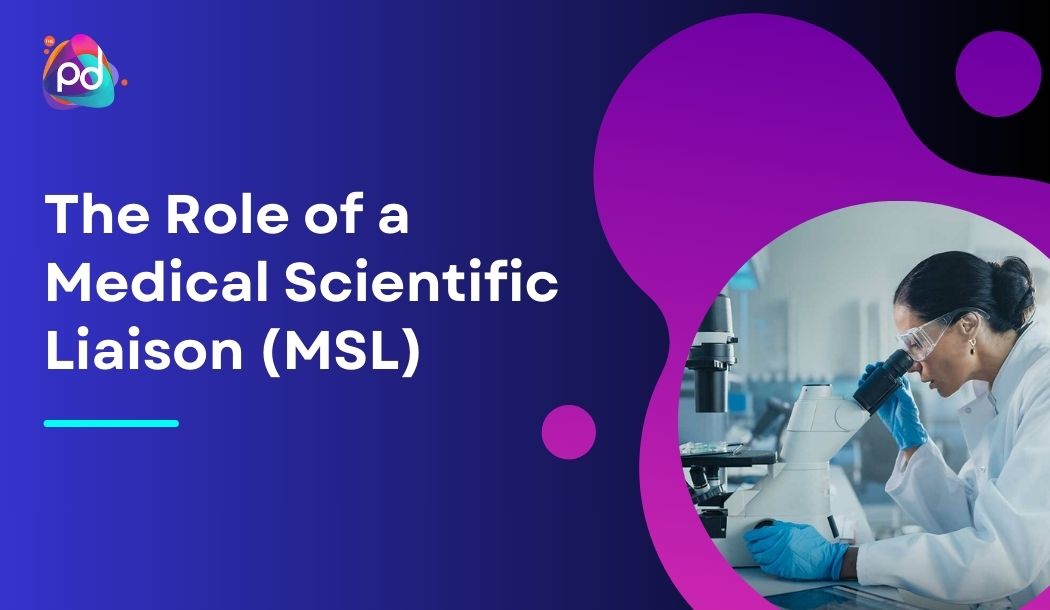
Role of Medical Scientific Liaison: Comprehensive Guide for Pharmacy Students
Introduction to MSL
Definition of a Medical Scientific Liaison (MSL)
A Medical Scientific Liaison (MSL) is a professional who acts as a bridge between the pharmaceutical company and the healthcare community. MSLs play a crucial role in communicating scientific information about the company's products, research, and developments to healthcare professionals (HCPs), including physicians, pharmacists, and researchers.
Importance and Significance of the MSL Role in the Pharmaceutical Industry
The MSL role is vital in the pharmaceutical industry as they ensure that accurate and up-to-date scientific information is disseminated to HCPs. This exchange of information helps in the appropriate use of medications, enhances patient outcomes, and supports the successful launch and lifecycle management of pharmaceutical products.
Key Responsibilities
Detailed Description of the Primary Duties and Responsibilities of an MSL
MSLs have a range of responsibilities that include:
- Building and maintaining relationships with key opinion leaders (KOLs) and HCPs.
- Presenting scientific data and clinical trial results to inform and educate HCPs.
- Supporting clinical research initiatives by identifying potential study sites and investigators.
- Providing medical and scientific support to internal teams such as marketing, sales, and regulatory affairs.
- Participating in advisory boards, medical conferences, and scientific symposia.
Examples of Day-to-Day Tasks and Long-Term Projects an MSL Might Handle
- Day-to-Day Tasks: Conducting one-on-one meetings with HCPs, answering scientific queries, delivering presentations, and staying updated with the latest research developments.
- Long-Term Projects: Collaborating on clinical trials, developing educational materials, and contributing to the strategic planning of product launches.
Skills and Qualifications
Essential Skills and Qualifications Required to Become an MSL
To become an MSL, one typically needs:
- An advanced degree (PharmD, PhD, MD) in a relevant scientific field.
- Strong understanding of clinical research and the drug development process.
- Excellent communication and presentation skills.
Preferred Educational Background and Professional Experience
Most MSLs have a background in pharmacy, medicine, or life sciences. Previous experience in clinical practice, research, or within the pharmaceutical industry is highly advantageous.
Soft Skills and Personal Attributes That Are Beneficial for Success in This Role
- Interpersonal Skills: Ability to build and maintain relationships with KOLs and HCPs.
- Analytical Skills: Ability to understand and communicate complex scientific data.
- Adaptability: Flexibility to adapt to changing environments and emerging scientific information.
Career Path and Opportunities
Typical Career Path for an MSL, Including Entry-Level Positions and Potential for Advancement
- Entry-Level: Starting as an MSL requires gaining experience in clinical practice or research.
- Advancement: With experience, MSLs can move into senior MSL roles, medical affairs management, or other leadership positions within the pharmaceutical industry.
Various Industries and Sectors Where MSLs Are Employed
MSLs are employed across various sectors, including pharmaceuticals, biotechnology, medical devices, and healthcare consulting firms.
Impact on the Pharmaceutical Industry
How MSLs Contribute to the Success of Pharmaceutical Companies
MSLs play a pivotal role in the pharmaceutical industry by:
- Facilitating the flow of scientific information.
- Supporting clinical trials and research initiatives.
- Ensuring HCPs are well-informed about the latest developments and uses of products.
Their Role in Bridging the Gap Between Clinical Research, Product Development, and Healthcare Providers
MSLs act as a conduit for scientific exchange, ensuring that clinical research findings are effectively communicated to those involved in patient care, thereby aiding in the development and optimization of new therapies.
Challenges and Rewards
Common Challenges Faced by MSLs in Their Role
- Keeping up with the rapid pace of scientific advancements.
- Balancing field-based activities with administrative responsibilities.
- Navigating regulatory and compliance requirements.
Rewards and Benefits of Pursuing a Career as an MSL
- Opportunities to engage with leading experts in the field.
- Contribution to the advancement of medical science and patient care.
- Dynamic and intellectually stimulating work environment.
Future Trends and Developments
Emerging Trends and Future Outlook for the MSL Profession
- Increased Demand: As the pharmaceutical industry continues to grow, the demand for MSLs is expected to rise.
- Technological Advancements: Digital tools and platforms will enhance the efficiency and reach of MSL activities.
Potential Advancements in Technology and Their Impact on the Role of MSLs
- Data Analytics: Leveraging big data to provide more personalized and impactful scientific information.
- Virtual Engagements: Utilizing virtual reality and other digital technologies for remote engagements with HCPs.
Conclusion
Recap of the Importance of the MSL Role
The role of a Medical Scientific Liaison is crucial in bridging the gap between pharmaceutical companies and healthcare providers. MSLs ensure that accurate and up-to-date scientific information is available to support the safe and effective use of medications.
Encouragement for Pharmacy Students and Professionals to Consider This Career Path
For those with a passion for science and communication, a career as an MSL offers a rewarding opportunity to make a significant impact on patient care and the pharmaceutical industry.




